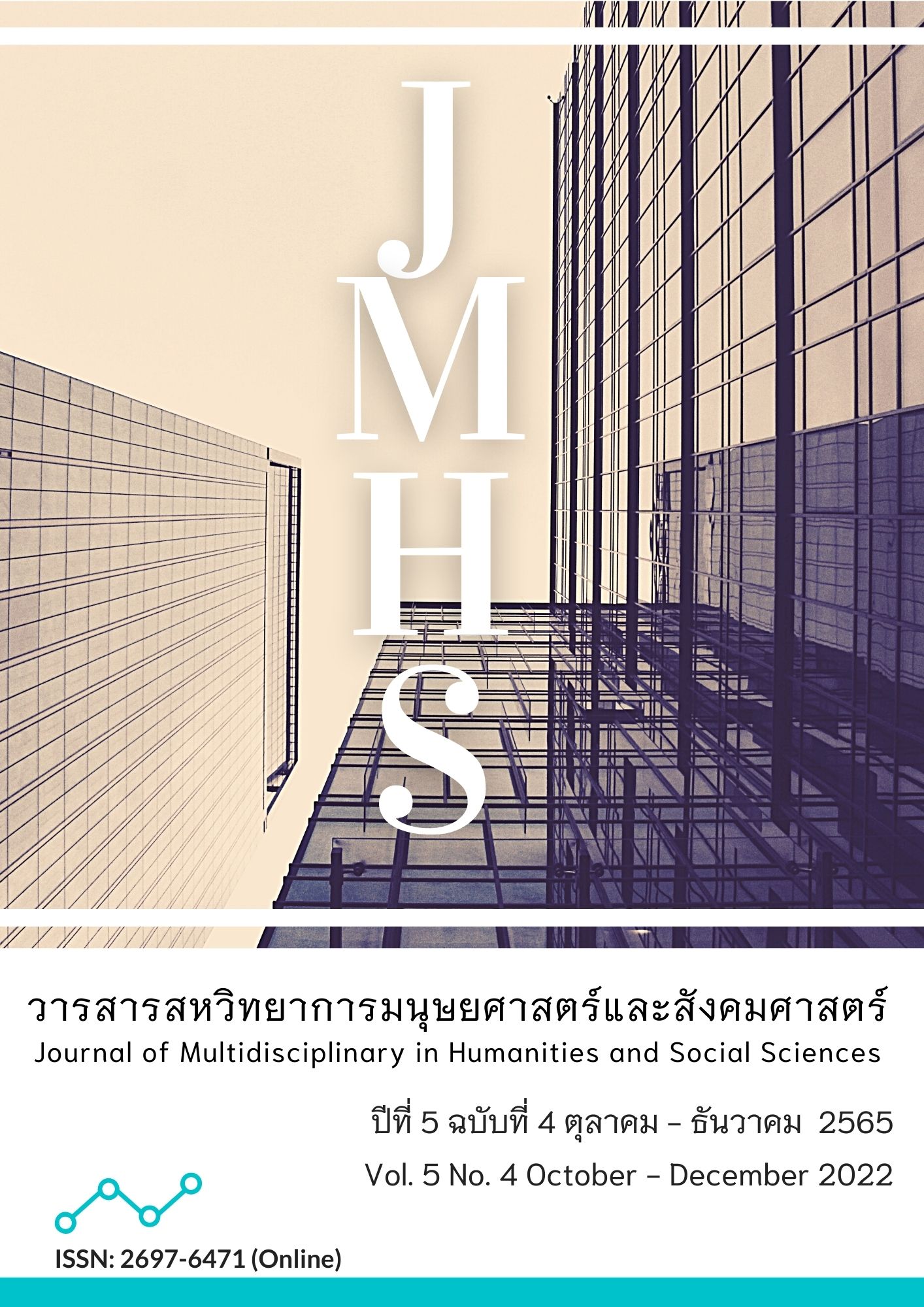อิทธิพลของทักษะนักตรวจสอบภาษีที่มีต่อประสิทธิภาพในการปฏิบัติงานของนักตรวจสอบภาษี ในเขตพื้นที่กรุงเทพมหานคร
Main Article Content
บทคัดย่อ
การวิจัยในครั้งนี้มีวัตถุประสงค์ เพื่อศึกษาอิทธิพลของทักษะนักตรวจสอบภาษีที่มีผลต่อประสิทธิภาพในการปฏิบัติงานของนักตรวจสอบภาษี ในเขตพื้นที่กรุงเทพมหานคร กลุ่มตัวอย่างที่ใช้ในการศึกษา คือ นักตรวจสอบภาษีที่ปฏิบัติงานในสำนักงานสรรพากรพื้นที่กรุงเทพมหานคร 1 – 30 จำนวน 330 คน ใช้วิธีการสุ่มแบบอย่างง่าย โดยไม่แยกตำแหน่งงาน ใช้แบบสอบถามเป็นเครื่องมือในการเก็บรวบรวมข้อมูล สถิติที่ใช้ในการวิจัยประกอบด้วยสถิติเชิงพรรณนา ได้แก่ ร้อยละ ค่าเฉลี่ย ส่วนเบี่ยงเบนมาตรฐาน และสถิติเชิงอนุมาน ได้แก่ 1) การตรวจสอบสหสัมพันธ์ใช้เพียร์สัน และ 2) การวิเคราะห์การถดถอยพหุคูณ
ผลการวิจัยพบว่า 1) ทักษะนักตรวจสอบภาษี โดยรวมและรายด้านอยู่ในระดับมาก ( = 3.95) 2) ประสิทธิภาพในการปฏิบัติงานของนักตรวจสอบภาษีโดยรวมและรายด้านอยู่ในระดับมาก (
= 3.94) และ 3) อิทธิพลของทักษะนักตรวจสอบภาษีที่มีต่อประสิทธิภาพในการปฏิบัติงานของนักตรวจสอบ พบว่า ทักษะนักตรวจสอบภาษีด้านทักษะทางปัญญา ทักษะการปฏิบัติงาน และทักษะการใช้เทคโนโลยีสารสนเทศมีอิทธิพลเชิงบวกต่อประสิทธิภาพในการปฏิบัติงาน ด้านการบรรลุเป้าหมาย ทักษะนักตรวจสอบภาษีด้านทักษะทางปัญญา ทักษะการปฏิบัติงาน และทักษะการสื่อสารมีอิทธิพลเชิงบวกต่อประสิทธิภาพในการปฏิบัติงาน ด้านผลงานน่าเชื่อถือและได้มาตรฐาน และด้านความสำเร็จของงานที่ทันเวลา และทักษะนักตรวจสอบภาษีด้านทักษะทางวิชาชีพ ทักษะทางปัญญา ทักษะการปฏิบัติงาน และทักษะการสื่อสารมีอิทธิพลเชิงบวกต่อประสิทธิภาพในการปฏิบัติงาน ด้านความพึงพอใจของผู้ที่เกี่ยวข้อง อย่างมีนัยสำคัญทางสถิติที่ระดับ 0.05
Article Details

อนุญาตภายใต้เงื่อนไข Creative Commons Attribution-NonCommercial-NoDerivatives 4.0 International License.
ทัศนะและความคิดเห็นที่ปรากฏในวารสาร ถือเป็นความรับผิดชอบของผู้เขียนบทความนั้น และไม่ถือเป็นทัศนะและความรับผิดชอบของกองบรรณาธิการ
เอกสารอ้างอิง
กรมสรรพากร. (2564, 29 กันยายน), เกี่ยวกับกรมสรรพากร. สืบค้นจาก https://www.rd.go.th/327.html
จันทนา สาขากร, นิพันธ์เห็นโชคชัยชนะ และ ศิลปพร ศรีจั่นเพชร. (2551). การควบคุมภายในและการตรวจสอบภายใน. (พิมพ์ครั้งที่ 2). กรุงเทพฯ: ทีพีเอ็นเพรส.
จินดารัตน์ โพธิ์นอก. (2557, 19 มีนาคม). ทักษะ. สืบค้นจาก https://d.dailynews.co.th/article/223844/
นลินี ดมหอม, อัครเดช ฉวีรักษ์ และ สลักจิต นิลผาย. (2562). ความสัมพันธ์ระหว่างความมั่นใจในการปฏิบัติงานกับประสิทธิภาพการทำงานของนักตรวจสอบภาษีปฏิบัติการ ของสำนักงานสรรพากรพื้นที่กรุงเทพมหานคร. วารสารการบัญชีและการจัดการ มหาวิทยาลัยมหาสารคาม, 10(1), 165-174.
รังสิยา พิทักษ์คีรี และ ฐิตาภรณ์ สินจรูญศักดิ์. (2564). ความสัมพันธ์ระหว่างสมรรถนะที่ส่งผลต่อประสิทธิผลในการปฏิบัติงานด้านการบัญชีของกรมการเงินกลาโหม. วารสารบัณฑิตศึกษาปริทรรศน์, 17(2), 42-55.
วสันต์ ครองมี, ปุณยวีร์ ยังดี และ พุฒิสรรค์ เกตุมรรค. (2563). ผลกระทบของทักษะนักบัญชียุคดิจิทัลที่มีผลต่อความสำเร็จในการทำงานของผู้ทำบัญชีในสำนักงานบริการด้านบัญชี จังหวัดเชียงใหม่. วารสารบริหารธุรกิจ มหาวิทยาลัยแม่โจ้, 2(1), 67-86.
สมพงษ์ เกษมสิน. (2521). การบริหาร. กรุงเทพฯ: ไทยวัฒนาพานิช.
สุลิตา สุปิณะ, อรยา เรียบไธสงค์ และ ธิติรัตน์ วงษ์กาฬสินธุ์. (2563). การศึกษาทักษะทางวิชาชีพบัญชีที่ส่งผลต่อความสำเร็จในการปฏิบัติงานของนักบัญชี : กรณีศึกษานักบัญชีในเขตกรุงเทพมหานครและปริมณฑล. วารสารวิทยาการจัดการปริทัศน์ มหาวิทยาลัยราชภัฏเทพสตรี, 22(1), 123-132.
อัมพร เที่ยงตระกูล. (2557). ความรู้ทางวิชาชีพ ทักษะทางวิชาชีพ และคุณค่าทางวิชาชีพของผู้สอบบัญชีรับอนุญาตภายใต้มาตรฐานสากลที่มีผลต่อการดำเนินงานของผู้สอบบัญชีรับอนุญาตของผู้ใช้บริการกลุ่มสินค้าอุตสาหกรรม และกลุ่มเทคโนโลยีในตลาดหลักทรัพย์แห่งประเทศไทย(รายงานวิจัย). มหาวิทยาลัยธุรกิจบัณฑิตย์.
Budiyanto., Mursalim., & Lannai, D. (2021). Effect of Auditor Functional Competence, Integrity, and Utilization of Information Technology on Tax Audit Quality. Point of View Research Accounting and Auditing, 2(3), 175-191. DOI: https://doi.org/10.47090/povraa.v2i3.148


